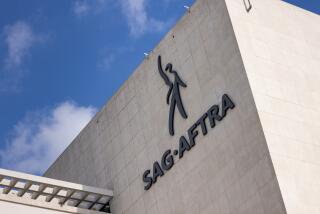Panel OKs Bill to Ease Bidding Rules; GOP Balks
- Share via
SACRAMENTO — A bill that would encourage competitive bidding for lottery contracts by easing income tax disclosure requirements for contractors passed a key legislative committee Wednesday, but Assembly Republicans threatened to block its passage because of a provision giving 30% of all large contracts to minority-run businesses.
Even before the measure cleared the Assembly Ways and Means Committee on a 12-6 vote, the bill’s author, Sen. Ralph C. Dills (D-Gardena), called for the state Lottery Commission to postpone bidding on a ticket supply contract worth $40 million or more until the Legislature has settled the disclosure issue.
Commission Chairman Howard Varner later said, however, that there is no way lottery officials can do so. “We’re ready to move based on our timetable,” he said.
Formal bids for the first lottery games, which will use tickets that can be scratched with a fingernail, must be submitted by Friday at 2 p.m.
Dills told reporters there is virtually no chance that his measure, which would make numerous changes in the voter-approved lottery initiative, could be out of the Legislature and signed by Gov. George Deukmejian before Friday’s bidding deadline.
Critics of the initiative have repeatedly charged that the measure was drafted by the nation’s largest supplier of lottery tickets, Scientific Games Inc. of Atlanta, to ensure that it would get the first ticket contract.
The initiative requires top officials of all supply companies as well as subsidiary and parent firms to submit state and federal income tax returns covering three years before their bids can be accepted. Scientific Games and its parent firm, Bally Manufacturing Corp., already make similar disclosures to regulatory agencies in New Jersey and Nevada, where Bally has gambling licenses.
At the Wednesday hearing, lobbyists for two of Scientific Games’ competitors--Webcraft Games Inc. and Moore Business Forms Inc.--said their companies will not submit bids because of the income tax disclosure requirement.
Webcraft, a subsidiary of the conglomerate Beatrice Companies Inc., would have to file tax returns for 500 of its officers, lobbyist George Zenovich said.
Lack of Competition
Scientific Games would get the contract without competition, raising the cost of tickets “hundreds of thousands of dollars,” Dills charged.
His bill would abolish the initiative’s requirement that all bidders submit income tax statements. Instead, it would leave it up to the Lottery Commission to decide if such information is necessary, but only for the successful bidder.
Assembly Democrats insisted on adding to Dills’ measure the requirement that 30% of contracts over $500,000 be subcontracted to minority-run business. Assemblywoman Maxine Waters (D-Los Angeles) argued that minority communities are likely to spend a disproportionate amount of their income on lottery tickets and deserve a share of the lottery business in return.
Republican Assemblyman Frank Hill of Whittier said, “The insistence on that 30% minority quota is unacceptable, at least to members of our caucus. I think what we’re going to end up with is a lesser quality product at a higher price.”
Restricted Competition
Hill maintained that such a quota would restrict competition.
Because the lottery initiative says that its provisions can be changed only by a two-thirds vote of the Legislature, the 33 Republicans could block the bill in the 80-member Assembly.
The Legislature has been intensely lobbied on the dozens of lottery bills it is considering.
Eight of the firms that hope to win a share of the state lottery business spent close to $135,000 on lobbying in the first three months of 1985, according to reports on file with the secretary of state.
Three of those firms--Scientific Games, GTECH Corp. and General Instruments Corp.--each reported contributing from $900 to $1,000 to legislators’ campaign committees in the same period.
More to Read
Get the L.A. Times Politics newsletter
Deeply reported insights into legislation, politics and policy from Sacramento, Washington and beyond. In your inbox twice per week.
You may occasionally receive promotional content from the Los Angeles Times.






